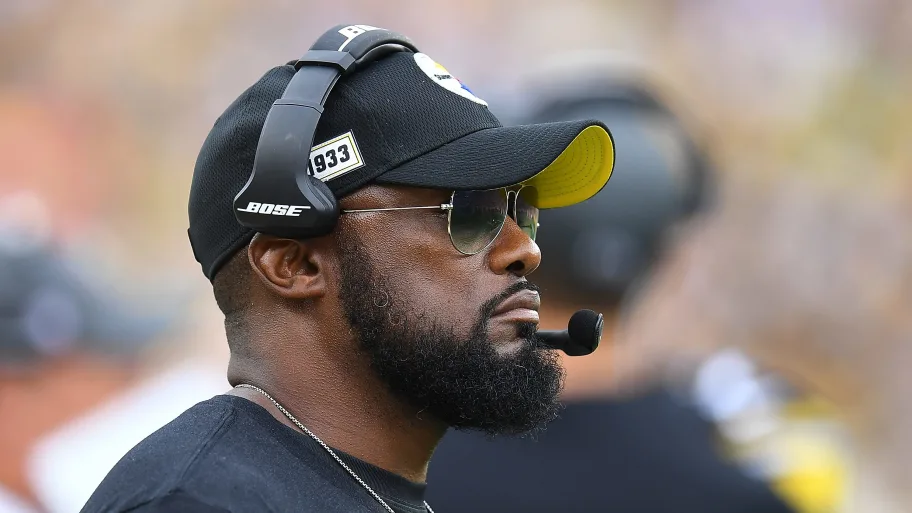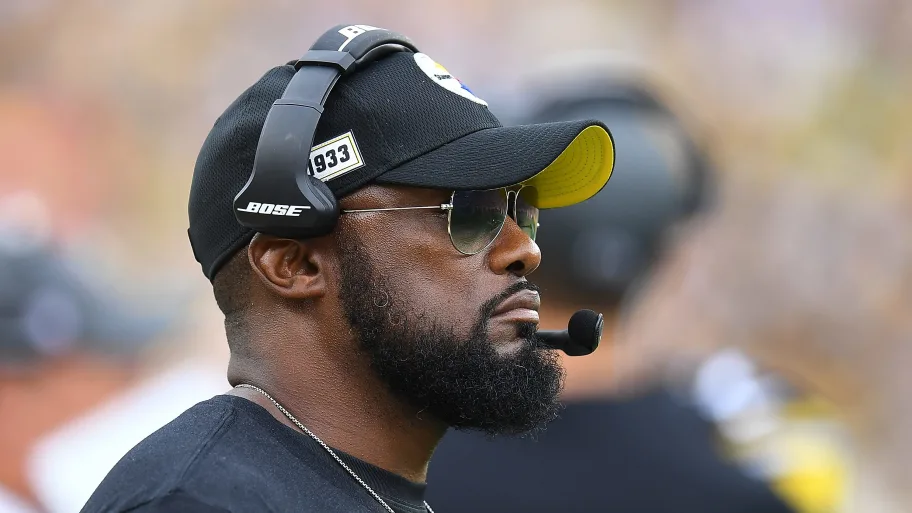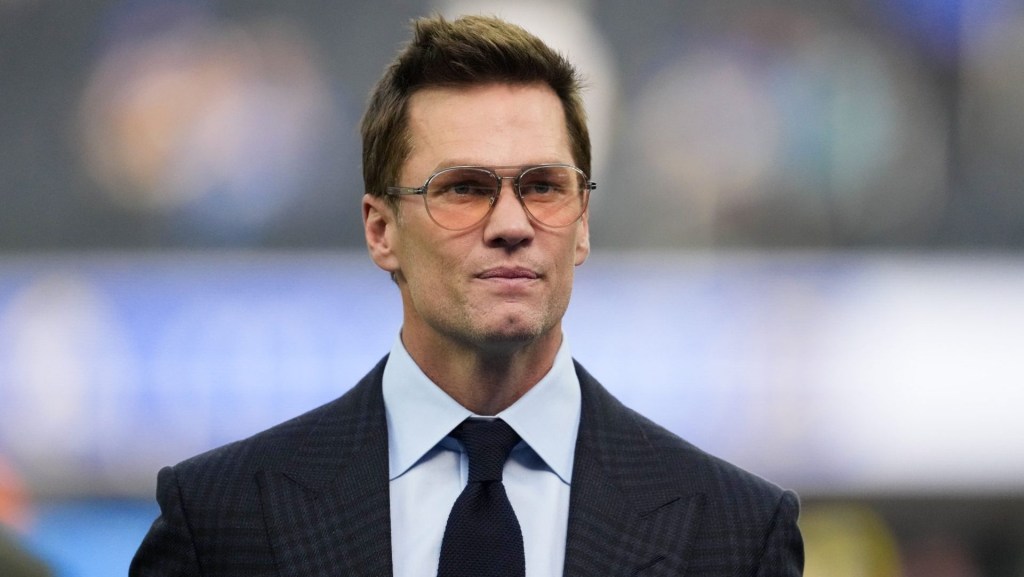
The NFL received its lowest overall score in racial and gender hiring practices in 15 years, according to the latest report from the University of Central Florida’s Institute for Diversity and Ethics in Sports.
The league received a B- overall grade in the 2019 NFL Racial and Gender Report Card, an annual report published by TIDES. It also received C+ and B marks in its gender and racial hiring practices, respectively. Last year, the league received a B overall grade.
The NFL obtained an overall score of 79.3%, a 2.4% drop year-over-year.
In terms of racial hires, the NFL scored an 82.3% – a 6.7% decrease year-over-year. The B grade for racial hiring practices snapped a streak of nine consecutive years that it earned at least an A-.
The NFL did not respond to a request for comment on this story.
Emblematic of the league’s declining diversity hires is the drop in head coaches and general managers who are people of color, said Dr. Richard Lapchick – the director of UCF’s Institute for Diversity and Ethics in Sports. While other sports don’t rely as heavily on coaches and general managers in their business operations, these positions are pivotal for NFL clubs.
At the start of the 2019 campaign, there were only two people of color filling or performing the role of GM – Chris Grier of the Miami Dolphins and Chris Olsen of the Houston Texans. Down from four in 2018 and six in 2017, the NFL received an F score in this category after scoring a D+ in 2018.
Similar to the dearth in diverse general managers, only four head coaching positions were filled by people of color heading into Week 1. Ron Rivera of the Carolina Panthers was the only Latino head coach, and Brian Flores of the Dolphins, Anthony Lynn of the Los Angeles Chargers, and Mike Tomlin of the Pittsburgh Steelers are the only African-American head coaches.
The percentage of African-Americans in NFL head coaching positions dropped from 21.9% in 2018 to 9.4% in 2019. This corresponds with a drop in total head coaches of color from 25% in 2018 to 12.5% in 2019 – and a D+ score in this category. Meanwhile, the percentage of white head coaches in 2019 increased from 75% in 2018 to 81.3% in 2019.
“The significant decline in head coaches and GMs of color – we weigh those grades more heavily than others because they are pivotal to decision making on the club in terms of football operations,” Lapchick said. “They’re probably the most public of the faces that each NFL franchise has, so to see the numbers go down to four head coaches of colored to general managers of color had a significant impact on the overall grade.”
READ MORE: WNBA Remains Leader In Gender And Racial Hirings Across Sports
As the CEO of Global Sport Institute at Arizona State University, Kenneth Shropshire has seen the likes of African-Americans Randall Cunningham and Michael Vick become quarterbacks in the NFL. He also noted the creation of The Rooney Rule, which requires NFL teams to interview minorities for head coaching and senior football operations jobs.
But despite the decline in many of its metrics in the report card this year, Shropshire remains confident that over time, the league will continue to improve in this area across the board.
“We can be optimistic that a better day will come and that there won’t be a lack of decisions to bring in people of color,” Shropshire said.
While the NFL is still struggling to display holistic diversity in the workplace, it is making progress with its gender hires. For 2019, the league earned a 76% for its gender score – a 2% bump year-over-year. It also saw gender diversity rise in the league office, up +1.8% year-over-year, and in team vice president positions, up 2.5% from last year. While the latter’s growth might be seen as minor, Lapchick is encouraged that it’s still able to trend upward.
Certain individual teams have been lauded for their willingness to place female workers in high-ranking positions. Alongside her husband Terry Pegula, Kim Pegula is the co-owner of the Buffalo Bills and president of Pegula Sports and Entertainment, which also manages the Buffalo Sabres.
In Philadelphia, more than half of the Eagles’ top executives are female – and include General Counsel Aileen Dagrosa, Chief of Staff Tina D’Orazio, Executive Director Ryan Hammond, and SVPs Jen Kavanagh and Catherine Carlson.
Down in Florida, Darcie Glazer Kassewitz is the owner and president of the Tampa Bay Buccaneers Foundation and Glazer Family Foundation. Last March, the Buccaneers also made news by hiring Lori Locust and Maral Javadifar as full-time coaches. It not only made the duo the first female coaches in Tampa Bay’s history, but they also made the team the first in NFL history to employ two female coaches.
READ MORE: MLB Diversity Fellowship Aims To Embrace Acceptance In Baseball
Still, the NFL – like other professional sports leagues – is playing catchup with diversity in the workplace. As an associate professor at UMass Amherst’s Isenberg School of Management, Nicole Melton sees sports as slowly progressing towards diversity numbers similar to those of Fortune 100 and 500 companies.
Since it began play in 1997, the WNBA has had the highest report card amongst its peers – and received an A+ overall grade in 2019. The NBA is right behind in terms of progressiveness, logging an A on the 2018 Racial and Gender Report Card.
Outside of professional basketball, other organizations like MLB (B- in 2019), MLS (B+ in 2018), and even college sports (C+ in 2018) are lagging behind – but they’re seeing the need to evolve, said Melton.
“I think all professional sports are more aware of the benefits that can come from diversity and inclusion,” Melton said. “The more racial and gender diversity you have, the better decision making you have, the more innovation that [leagues] can generate, and the better they can connect with their fans. I think that they’re all seeing the need for it. It’s just that [professional sports] have a lot of catching up to do, particularly compared to some of their peers that aren’t in the sports industry.”







![[Subscription Customers Only] Jun 15, 2025; Seattle, Washington, USA; Botafogo owner John Textor inside the stadium before the match during a group stage match of the 2025 FIFA Club World Cup at Lumen Field.](https://frontofficesports.com/wp-content/uploads/2026/02/USATSI_26465842_168416386_lowres-scaled.jpg?quality=100&w=1024)
![[Subscription Customers Only] Jul 13, 2025; East Rutherford, New Jersey, USA; Chelsea FC midfielder Cole Palmer (10) celebrates winning the final of the 2025 FIFA Club World Cup at MetLife Stadium](https://frontofficesports.com/wp-content/uploads/2026/02/USATSI_26636703-scaled-e1770932227605.jpg?quality=100&w=1024)







